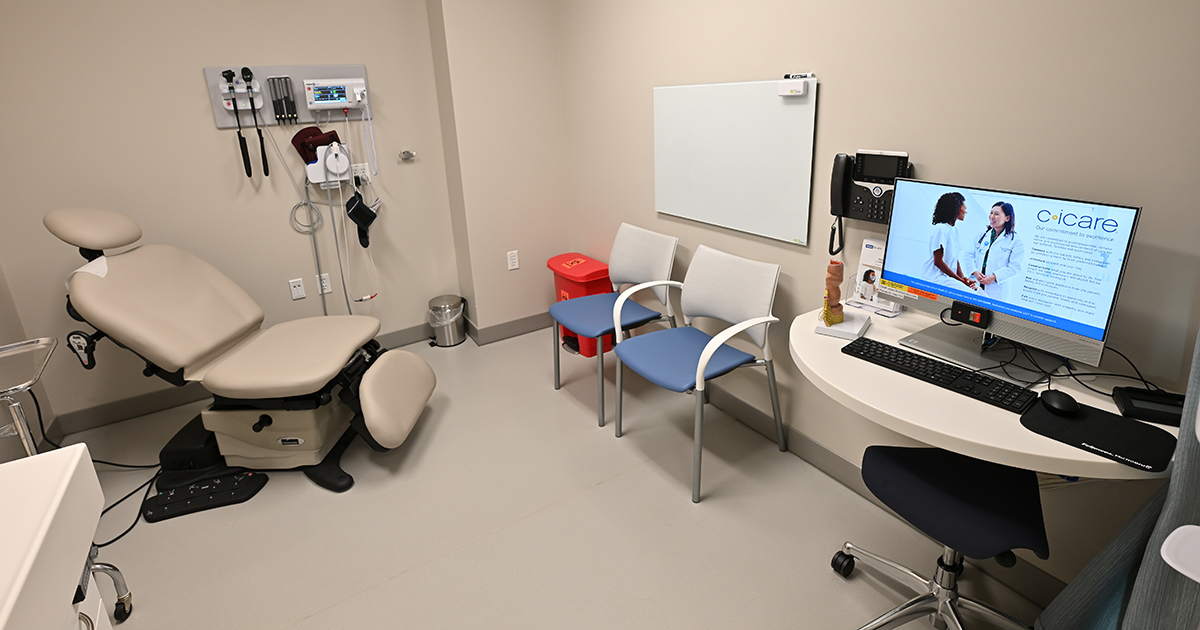We suggest that you put together an experienced team of medical experts at a high-volume medical center to help you navigate your pancreatic cancer diagnosis. You will want to make sure you include certain specialists to help you throughout treatment including a registered dietitian, palliative care doctor, and psychosocial support specialist. It is important to remember that doctors and your healthcare team are there for you, as their goal is to help you on your path to a healthy life.
Your Team
Medical Oncologist – A physician who specializes in the diagnosis and treatment of cancer. After a cancer diagnosis is made, it is the oncologist’s role to explain the cancer diagnosis and the meaning of the disease stage to the patient; discuss various treatment options; recommend the best course of treatment; deliver optimal care; and improve quality of life both through curative therapy and palliative care with pain and symptom management. Often the medical oncologist leads the overall treatment team to keep track of the tests and exams.
Surgical Oncologist – A surgeon who performs operations to remove cancer. A doctor who specializes in treating cancer with surgery. Your surgeon should be an experienced high-volume surgeon for the best possible outcome.
Registered Dietician – A specialist trained in foods and the management of diets who consults with patients regarding their nutrition before, during, and after chemotherapy. It’s important to meet with a registered dietician familiar with pancreatic cancer to create a nutrition plan specific to your needs.
Palliative Care Specialist – Palliative care is treatment provided by a specially trained team of doctors, nurses, and specialists who provide an extra layer of support for people diagnosed with a serious illness. It can help patients and their families clarify their goals of care while providing symptom management, psychosocial guidance, and spiritual support. Palliative care is not hospice and can be used with curative treatment.
Psycho-Social Support – Mental health experts such as psychologists and psychiatrists who can help manage the emotional toll of a cancer diagnosis. Through talk therapy, medication and other techniques, these experts can help manage issues such as anxiety, depression, and more. Studies have found a connection between social support, spiritual assistance, and more positive cancer outcomes. Patients are encouraged to ask their doctors about available resources within the cancer center to help them achieve a calmer and more peaceful state while navigating this challenging disease. There are also support groups to help navigate the emotions that arise with a cancer diagnosis.
In addition to your oncologist, you will likely meet medical specialists, nurses and others on your journey. Some facilities have a team approach or integrated practice units (IPU), but in other places you need to seek out and create your own lineup of specialists.
Medical Specialists
Anesthesiologist – A doctor who specializes in providing anesthesia, a medication that controls pain during procedures and surgery.
Gastroenterologist – A physician who specializes in the diagnosis and treatment of diseases of the digestive system. Gastroenterologists are also trained in endoscopy, the use of narrow, flexible lighted tubes with built-in video cameras, to visualize the inside of the intestinal tract.
Radiation Oncologist – A physician whose specialty is the use of radiation therapy as a treatment for cancer.
Pathologist – A physician who interprets and diagnoses the changes caused by disease in tissues and body fluids. Pathologists study the cells, tissues, and organs removed during a biopsy or surgery to help determine the disease.
Integrative Medicine Specialist – An individual who delivers treatments that focus on the whole patient – mind, body, spirit – to help you feel better. Integrative Medicine is a treatment approach that combines Eastern and Western medicine.
Pain Management Specialist– Aphysician with special training in evaluating, diagnosing, and treating all different types of pain. Pain is a wide spectrum of disorders, including acute pain, chronic pain, cancer pain, and sometimes a combination of these. Your pain management plan may include traditional medication as well as alternative treatments, including acupuncture or cannabis.
NURSES & OTHER SPECIALISTS
Nurse Case Manager – A person responsible for the process of organizing and coordinating resources and services in response to individual healthcare needs along the illness and care continuum.
Oncology Certified Nurses – A nurse who specializes in treatment of patients with cancer and has passed a certification examination, developed and administered by the Oncology Nursing Certification Corporation. These nurses often provide hands-on care such as answering questions, managing care, and helping you cope with the side effects of treatment. Learn more from our Nurses Guide to Pancreatic Cancer.
Pharmacist– A person who is professionally qualified to prepare and dispense medicinal drugs. There are large chain pharmacies, some online pharmacies, and local pharmacies that should supply your needed prescriptions. We encourage you to find what works best for you.
Social Worker – A professional and academic discipline that seeks to improve the quality of life and subjective well-being of individuals, families, couples, groups, and communities. Social workers can help solve and cope with the everyday problems that arise following a cancer diagnosis.
CHOOSING THE RIGHT DOCTOR FOR YOU
Selecting the right doctor is crucial as you navigate your diagnosis and assemble your medical team. Every doctor has a unique personality and bedside manner. Establishing a strong, supportive relationship with your doctor is ideal for your care. Don’t hesitate to explore different options or seek second opinions until you find the doctor who meets your needs. Communicating honestly and openly with your doctors or healthcare providers can greatly improve the quality of care you receive.
